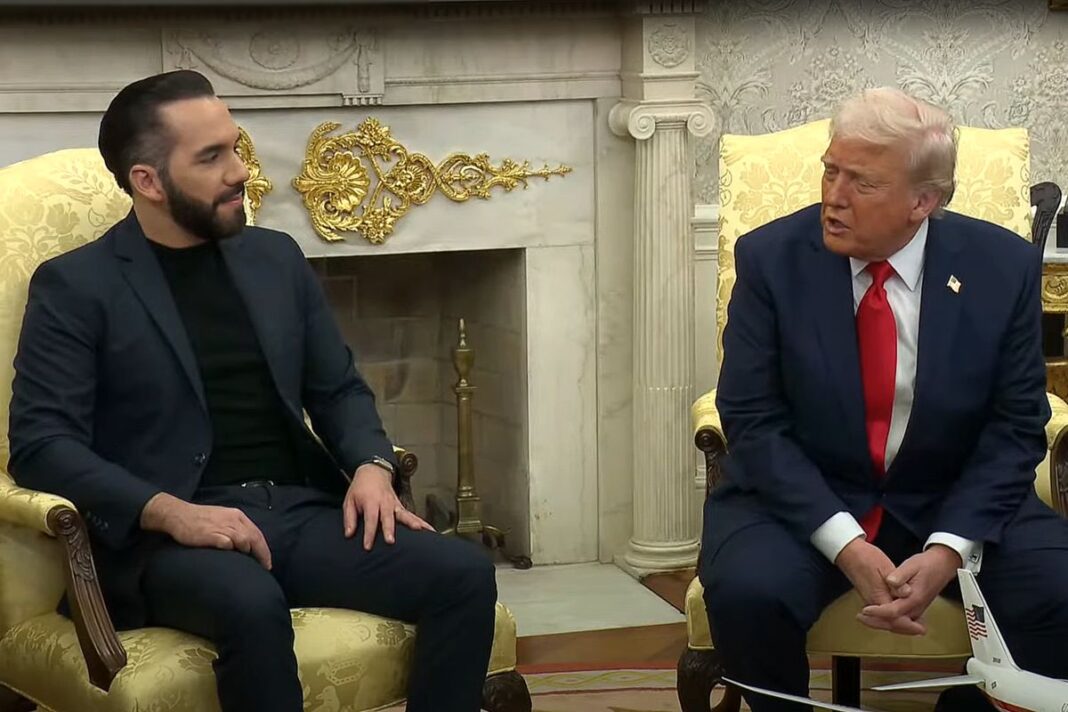The president said his administration would be examining relevant laws.
President Donald Trump on April 14 said he’s in favor of deporting some U.S. citizens who have committed crimes, drawing criticism from Democrats.
“I don’t know what the laws are—we always have to obey the laws—but we also have homegrown criminals that push people into subways, that hit elderly ladies on the back of the head with a baseball bat when they’re not looking, that are absolute monsters,” Trump told reporters at the White House in Washington.
“I‘d like to include them in the group of people to get them out of the country, but you’ll have to be looking at the laws on that,” he added.
Trump confirmed later that he was talking about including U.S. citizens among the people being deported.
“If they’re criminals and if they hit people with baseball bats over their head … and if they rape 87-year-old women in Coney Island, Brooklyn, yes, that includes them,” he said. “Why, do you think they’re a special category of person? They’re as bad as anybody that comes in. We have bad ones too.”
Trump was speaking during a meeting with El Salvadoran President Nayib Bukele, whose country is housing hundreds of illegal immigrants deported from the United States.
Bukele previously offered to house citizens of any nationality in El Salvador’s prisons.
As Trump and Bukele entered the room, the president said that “homegrown criminals are next.” He said that El Salvador would have to “build about five more places.”
Bukele responded, “we’ve got space.”
The U.S. Constitution gives citizens protection and courts have ruled that Americans who commit crimes retain their citizenship. People who are naturalized, on the other hand, can lose their citizenship if they’ve been found to illegally procure the naturalization, some rulings determined.
“It is illegal to expatriate U.S. citizens for a crime. In fact, U.S. citizens can only be stripped of citizenship if they knowingly perform acts resulting in a voluntary relinquishment of citizenship such as a ‘formal renunciation of nationality in the United States during a time of war’ or ‘leaving or remaining outside the United States during a time of war or national emergency to avoid military service,’ Lauren-Brooke Eisen, senior director at the Brennan Center for Justice, wrote in a blog post.
Democrats decried Trump’s comments.






